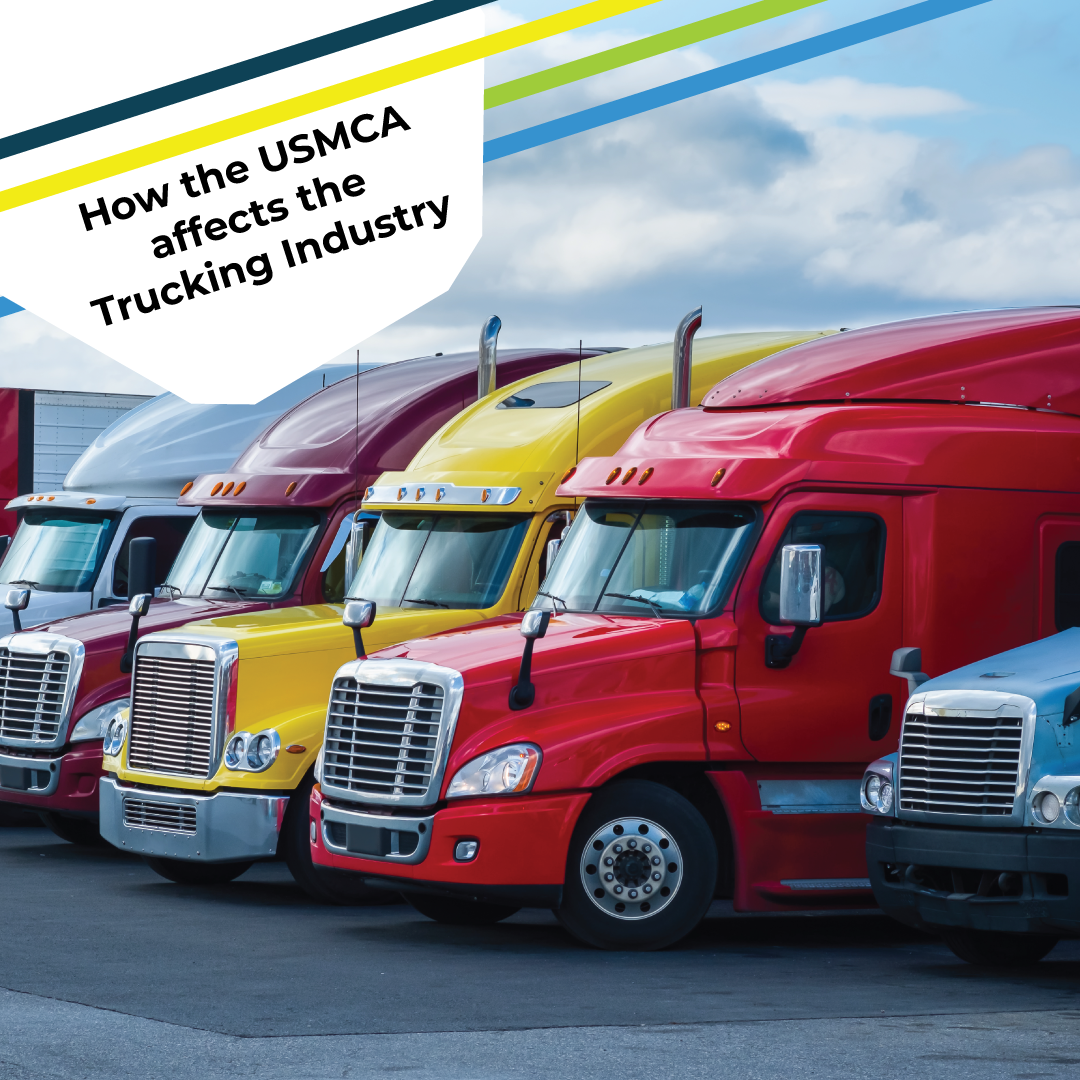 Four months after the final ratification took place in Canada, The United States-Mexico-Canada Agreement (USMCA) became effective on Wednesday, July 1, 2020 as the successor of the North American Free Trade Agreement (NAFTA). The purpose of the new agreement is to support “North American manufacturing and mutually beneficial trade.”
Four months after the final ratification took place in Canada, The United States-Mexico-Canada Agreement (USMCA) became effective on Wednesday, July 1, 2020 as the successor of the North American Free Trade Agreement (NAFTA). The purpose of the new agreement is to support “North American manufacturing and mutually beneficial trade.”
There are several key changes allowing for economic growth, with the U.S. trucking industry being a main benefactor. 75% of auto parts of a vehicle (including trucks) are required to be made in North America, which closes the gap in NAFTA that incentivized low wages in the production of automobiles and its parts; with this stipulation, truck manufacturers like Freightliner and Mack will greatly benefit.
Some Key Points of the USMCA
The trucking industry will become busier and see direct growth with more relaxed trade restrictions and increased emphasis on domestic production and manufacturing. More U.S. agricultural products will be allowed into Canada. The full range of U.S. dairy products will have unprecedented market access into Canada as well.
American truckers will get a home-field advantage with this new agreement, by reducing foreign competition with Mexican drivers. For example, Mexican carriers cannot haul freight when both the origin point and destination are in the United States. This means that limiting foreign competition while allowing more agricultural trade into Canada will surely keep the American trucking industry busy. Cross-border truckers will see wait times decrease by allowing more opportunities for companies to gain the authorities for speedier customs.
With increasing steel and aluminum prices in the United States, the future is unclear. Increasing the percentage of a vehicle’s auto parts to 75% can produce more much-needed jobs for Americans. Car manufacturers pays a tariff if the 75% criteria is not met. Restructuring the supply and logistics chain would take about 5-10 years to meet the 75% requirement and minimize costs. If restructuring isn’t worth it to the manufacturers, they would have to pay more out of pocket through tariffs and maintain current operations.
USMCA is subject to review by the three countries every six years where they can decide to extend the agreement. Also, it has a sunset clause where in 16 years, the agreement expires.
